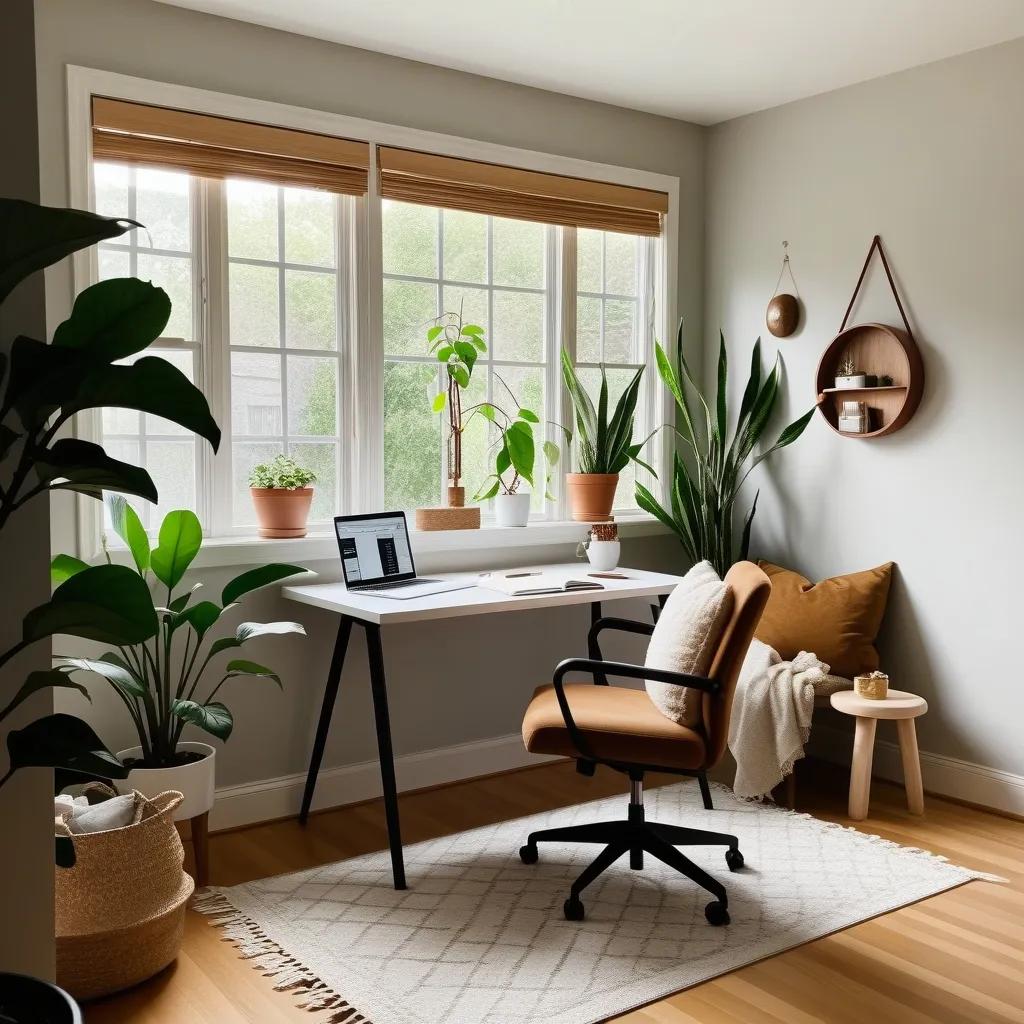Working from home has become the new normal for many people, bringing both benefits and challenges. While the flexibility and comfort of your own space are undeniable perks, maintaining good mental health can be tricky. Let’s dive into some proven ways to boost your mental well-being while working remotely.
First things first, establishing a daily routine is crucial. It’s not just about setting work hours; it’s about creating a structure that helps your brain transition into work mode. Wake up at the same time every day, take a shower, get dressed, and have a good breakfast. It might seem silly to get dressed for work when you’re not leaving the house, but trust me, it makes a difference.
I used to work in my pajamas, and let me tell you, it wasn’t doing me any favors. Once I started treating my mornings like I was actually going to an office, my productivity skyrocketed. It’s like my brain finally got the memo that it was time to work.
Creating a dedicated workspace is another game-changer. It doesn’t have to be a whole room - even a small corner will do. The key is to have a space that’s just for work. This helps you mentally separate your work life from your personal life. Add some plants, let in some natural light, and maybe hang up a motivational quote or two. Make it a place you actually want to be.
I turned a tiny nook in my living room into my office, and it’s made such a difference. When I’m in that space, I’m in work mode. When I leave it, I can relax and switch off. It’s like having an on/off switch for work, right in your own home.
Now, let’s talk about breaks. When you’re at home, it’s easy to fall into the trap of working non-stop. But here’s the thing: you need breaks. Set alarms on your phone to remind you to step away from your desk regularly. Use these breaks to do something that relaxes you. Maybe take a quick walk around the block, do some stretches, or just sit outside for a few minutes.
I’ve got a dog, and my breaks often involve playing with him for a few minutes. It’s a great way to reset my brain and come back to work feeling refreshed. Plus, he loves it, so it’s a win-win.
One of the biggest challenges of working from home is the lack of human interaction. It’s easy to start feeling isolated. That’s why staying connected with others is so important. Use video conferencing tools to have virtual coffee breaks or lunch meetings with colleagues. It doesn’t always have to be about work - sometimes a quick chat about your weekend plans can make you feel more connected.
If possible, try working from a co-working space or coffee shop once in a while. Being around other people, even if you’re not interacting with them, can give you that social boost you need. I started going to a local café once a week, and it’s become something I really look forward to. It’s amazing how energizing it can be just to be in a different environment.
Self-care is another crucial aspect of maintaining good mental health while working from home. This isn’t just about treating yourself to a bubble bath (although that’s nice too). It’s about taking care of your physical and mental well-being. Exercise is a great way to boost your mood and reduce stress. Whether it’s a morning jog, a home workout video, or a simple walk around the block, get your body moving.
I’ve started doing yoga in the mornings, and it’s been a game-changer. It helps me start the day feeling calm and centered, which makes a huge difference in how I handle stress throughout the day.
Meal prep and staying hydrated are also important. When you’re at home, it’s easy to snack all day or forget to drink water. Take advantage of being at home to cook healthy meals and keep a water bottle at your desk. Trust me, your body and brain will thank you.
Meditation and mindfulness practices can be incredibly beneficial for reducing anxiety and stress. If you’ve never meditated before, don’t worry - there are tons of great apps out there that can guide you through it. Even just taking a few deep breaths can help you unplug from work-related thoughts and recharge.
I was skeptical about meditation at first, but I gave it a try using one of those apps, and now it’s part of my daily routine. It helps me stay focused and calm, even on the most stressful days.
Setting boundaries is vital when working from home. It’s easy for work to bleed into your personal time when your office is just a few steps away. Set clear work hours and stick to them as much as possible. When your workday is over, turn off your work email notifications and do something to physically separate yourself from your work.
I used to have a hard time with this, always feeling like I should be available 24/7. But setting boundaries has actually made me more productive during my work hours and happier overall. Now, when I’m done for the day, I’m done. I go for a walk or do some reading - anything to signal to my brain that work time is over.
Finally, don’t be afraid to seek support when you need it. Working from home can sometimes feel isolating, and it’s easy to overlook signs of depression or anxiety. If you’re feeling stuck or overwhelmed, reach out to someone you trust or consider online therapy sessions.
Remember, mental health is just as important as physical health. Taking care of your mental well-being isn’t a luxury - it’s a necessity. It’s okay to have off days, and it’s okay to ask for help when you need it.
Working from home doesn’t have to be a lonely or stressful experience. It might take some time to find what works best for you, but with these strategies, you can create a healthy, productive work environment right in your own home. So take a deep breath, put on some real clothes (yes, even if no one will see you), and face the day with a positive attitude. Your mental health will thank you, and you might just find that you enjoy working from home more than you ever thought possible.






